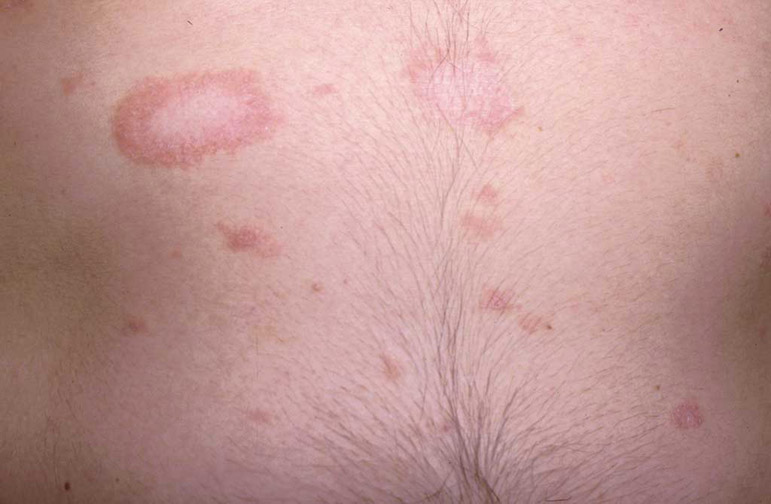Pityriasis Rosea (PR) is one of the most common rashes I encounter in both my The Woodlands dermatology and Conroe dermatology clinics. Typically, it occurs in children and young adults. It usually begins as one large scaly red plaque on the back or chest called the Herald patch. Soon after the appearance of the Herald patch, smaller red scaly plaques arise on the back, chest, extremities and neck. They have a unique pattern which has been described as a “christmas tree” and the plaques are arranged horizontally along the skin cleavage lines. In 20% of patients, aypical PR occurs in which the plaques are less concentrated on the trunk and can be found in the intertriginous folds and face. The lesions in atypical PR may also resemble urticaria or erythema multiforme and can even be vesicular (blisters). The majority of patients with PR experience pruritus (itching). In most patients, PR is present for one or two months and then resolves without any permanent scarring or discoloration. As syphilis can look very similar to PR clinically, it is important to rule out this disease with an RPR blood test. The cause of PR is unknown but many dermatologists hypothesize that it is caused by a virus with Human Herpesvirus 6 (HHV 6) and Human Herpesvirus 7 (HHV 7) as the primary suspects. The viral etiology is supported by the fact that some patients experience a mild viral like prodrome prior to the rash appearing and some studies have revealed HHV 6 and HHV 7 in PR skin lesions. Some drugs can cause PR such as barbituates, gold, captopril, bismuth, and metrondiazole. Treatment is usually ineffective but a topical steroid cream such as triamcinolone twice a day can expedite the resolution of the rash and diminsh the pruritus.





